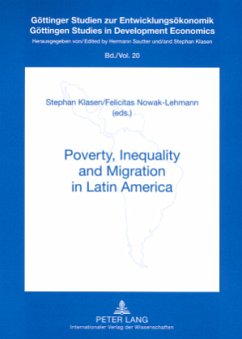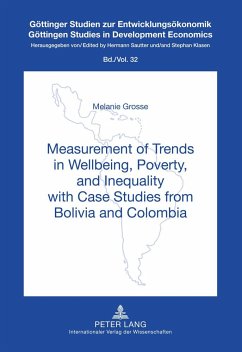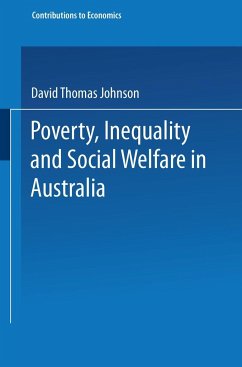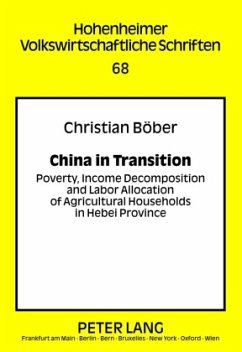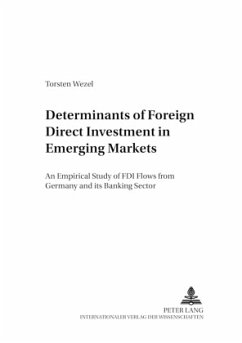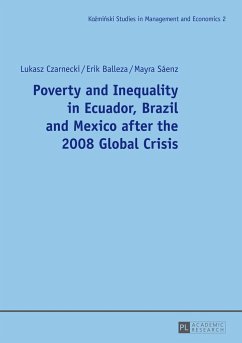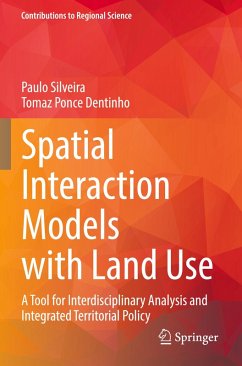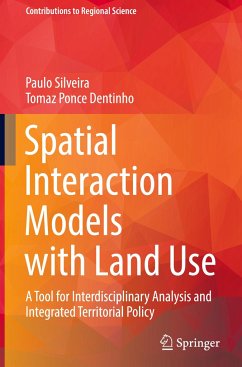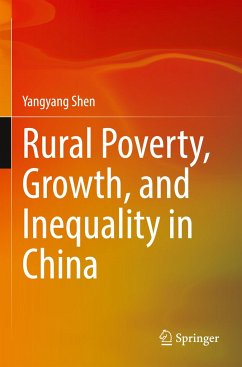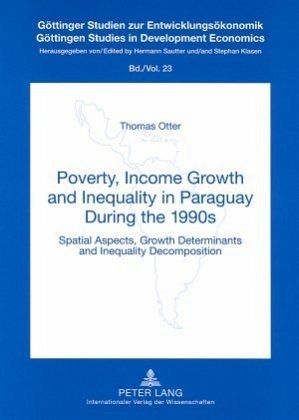
Poverty, Income Growth and Inequality in Paraguay During the 1990s
Spatial Aspects, Growth Determinants and Inequality Decomposition. Dissertationsschrift
Versandkostenfrei!
Versandfertig in 6-10 Tagen
52,05 €
inkl. MwSt.

PAYBACK Punkte
0 °P sammeln!
The Paraguayan economy did not suffer debt crises in the eighties and had significant growth rates in the second half on the seventies, but poverty remained a problem. Understanding the performance and spatial distribution of poverty and inequality over a period of more than ten years can shed new light on structural causes behind what seems to be a low growth - high poverty - high inequality trap in Paraguay. How did poverty and inequality change during the 1990s. Did inequality reduce income growth? What were the growth determinants and what are the main forces driving inequality changes? Th...
The Paraguayan economy did not suffer debt crises in the eighties and had significant growth rates in the second half on the seventies, but poverty remained a problem. Understanding the performance and spatial distribution of poverty and inequality over a period of more than ten years can shed new light on structural causes behind what seems to be a low growth - high poverty - high inequality trap in Paraguay. How did poverty and inequality change during the 1990s. Did inequality reduce income growth? What were the growth determinants and what are the main forces driving inequality changes? These are the questions being answered in this book.



